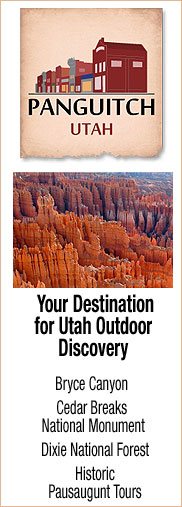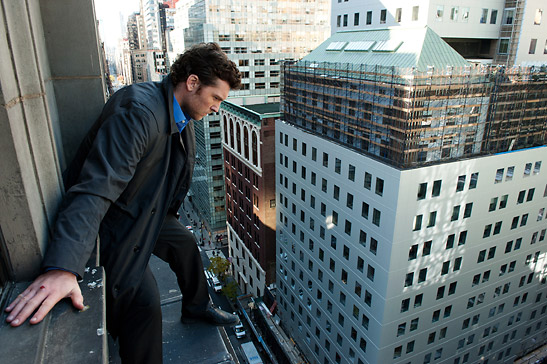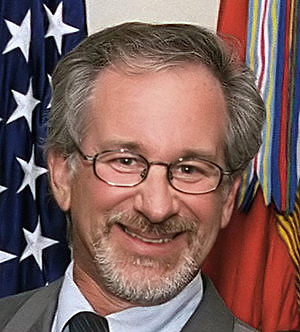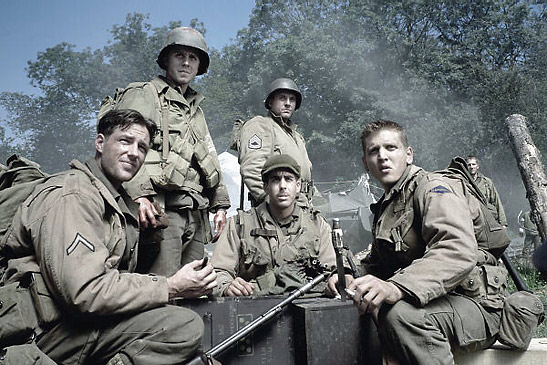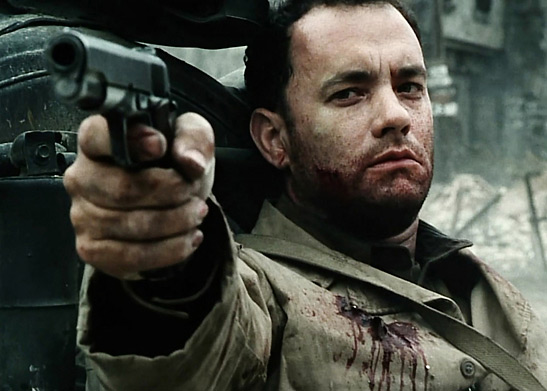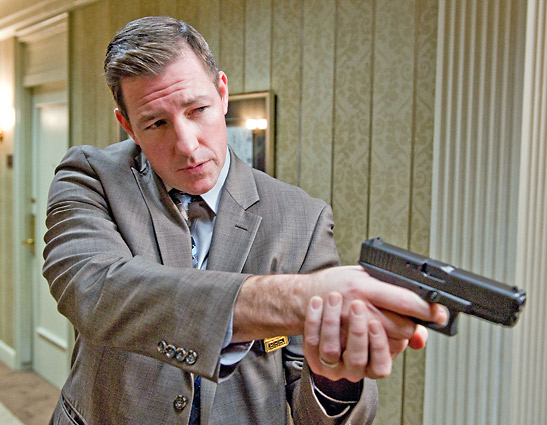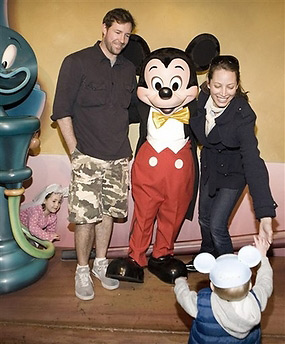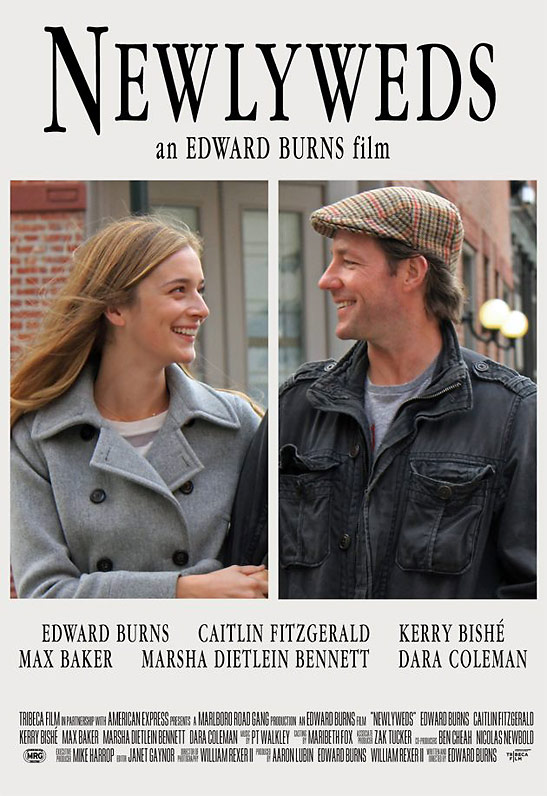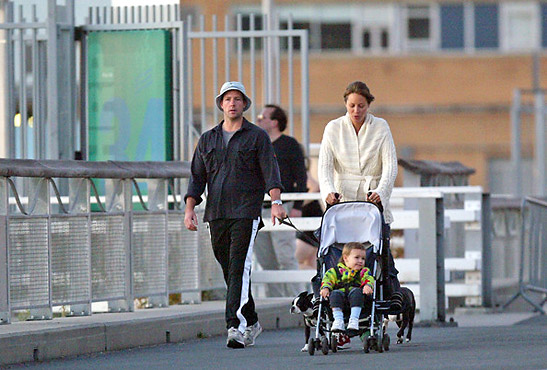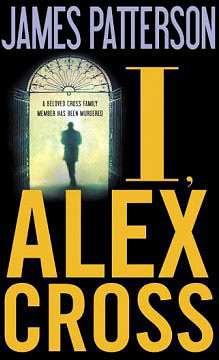 |
 |
|
 |

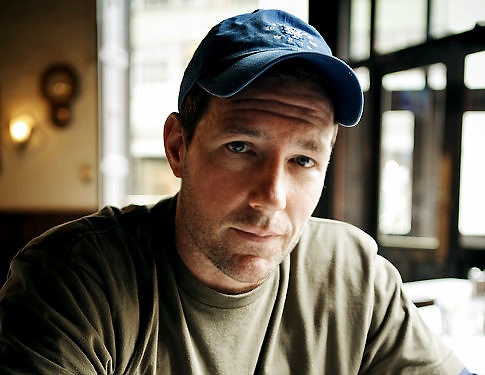 Credit: Courtesy Photo Edward Burns Interview -
Burns recently sat down with a select group of journalists to discuss, among other topics, his latest film, “Man On A Ledge,” a fun pop-corn caper film loaded with interesting twists and turns. He co-stars with Ed Harris, Edward Burns, Jamie Bell, Anthony Mackie, Titus Welliver, Genesis Rodriguez, and Kyra Sedgwick. The following has been edited for continuity and print purposes.
Cohn: “The Brothers McMullen” received much critical acclaim, as did your work in “Saving Private Ryan” and even “27 Dresses.” Being as multi-talented as you are, when you are hired as an actor, do you ever see things directorially that the director might be missing and do you act on it? Burns: Never. The first movie that I acted in that wasn’t my own, was “Saving Private Ryan,” and I knew when I showed up on that set that I wasn’t going to be offering any suggestions to Spielberg (Steven) as to where to put the camera. (laughter) I went on to that set thinking this could be graduate film school for me and I’m going to watch how the great master does it. I learned so much about working with actors and communicating with the crew, and executing different types of scenes I’d never done. So, every film that I work on as a hired actor, I seize that opportunity to kind of sit back and watch and learn and I did that on “Man On A Ledge.”
Cohn: Before we talk about “Man On A Ledge” what specifically did you learn from working with Spielberg? Burns: We were doing two or three takes and then moving on. We’re thinking that he hates us and we’re all going to get fired. Then we have this scene where we have a fourth take and he’s giving very specific direction to everyone and after 12 takes, we finally move on. At lunch we sit down and ask him what happened today and why all the direction to which he said, that ‘today you didn’t know what the hell you were doing.’ He explained that he cast us because we were all very specific types and he knew what we could do and wanted us to that in the film. He said that I’ve got an ensemble here so you’ve got a lot of scenes with five guys talking to each other and I’m going to give you three takes to figure it out. You obviously made your choices and came prepared but I don’t expect you to nail it on the first take. I’m going to give you room to get warmed up and in the first take you might hit 50% of what you planned on doing, but maybe you missed a couple of moments you wanted. I figure by the third take I’ve given you enough room to know whether or not you’re going to find it on your own and most times I guess we did and other times we didn’t. Cohn: How did that experience impact on your own directing style? Burns: Prior to that experience, I was the kind of director who thought directing meant that after every take I am sitting down with the actors and giving them some direction. The first film I made after “Ryan” was “Sidewalks of New York.” I look at the performances I got in that film, not to take anything away from the actors in my first three films, but I really almost gave no direction in that film. It was really gentle pushes and nudges sometimes to speed it up. That was the start of my collaborating with my actors in a different way – encouraging a bit more and improvising and that’s kind of where I am now.
Cohn: What did you pick up from Tom Hanks? Burns: We’ve all worked with jerks on sets but I credit Tom with learning how to conduct yourself on set as an actor. He’s one of the biggest movie stars of all time and the guy shows up early every day, knows his lines, never argues with the director, knows everybody’s name, is polite and giving to everyone, and does all of his off-camera work with the same energy as when he’s on camera. We were all a bunch of young kids and nobody had been in a big movie before so we were constantly picking Tom’s brain about the ‘biz’ and his preparation in developing a character. The great thing about Tom is, while he takes the work very seriously, he doesn’t take himself seriously. We would be sitting around joking, having a great time and Steven would say, ‘OK, let’s get ready to roll,’ and Tom would take a moment and that would be good to go. That was very impressive.
Cohn: Getting back to “Man On A Ledge” how much help did you get in character development?
Burns: There are some directors that are completely open to that kind of creative collaboration and that’s how I like to work with my actors. I bring them in early and encourage them to help me flesh out the characters. I’ve always said that an actor is only concerned about the character they’re playing, whereas the writer/director has to worry about the entire piece so a good actor is going to show up and know his character much more intimately than the filmmaker and even the writer so I want to tap into the work they’ve done in order to help me better understand the character and also flesh it out in a different way by adding some nuances that I didn’t think of quite honestly. I’ve worked with filmmakers who have no interest in that kind of a relationship and then some others who do. Fortunately, in this film, Asger (Leth, director) was willing to give us a little room to play and explore. Cohn: Your character in the film of Detective Edward Burns tries to talk Sam Worthington’s character of Nick Cassidy off the ledge. Do you think you could actually do that in real life? Burns: Probably not. I doubt that I have that skill set. I have a couple of little kids so I’m negotiating all day long – eat your broccoli if you want to watch “The Adventures of Tin Tin.” (laughter) Cohn: You drive a hard bargain. (laughter)
Cohn: Does your wonderful New York accent ever get in the way? Burns: The thing that I was most happy about in this film, was that I didn’t have to deal with my New York accent. Sometimes I get ‘we have to do another take because that New York shit came out.’ (laughter) Cohn: Your dad was a New York Police sergeant so did you use him in any way in developing your character? Burns: Not necessarily. He was a cop. His brother was a cop. I’ve got five first cousins who are cops – three of my childhood buddies became cops so I grew up immersed in cop culture so to be perfectly honest, I know how to walk the walk and talk the talk enough to fake it in a movie. There were a couple of guys I know that you could say that while I didn’t exactly base Dougherty on, but did tap into that type of jerky personality where he’s pissed off at the world when he gets demoted and has to play subordinate to Elizabeth’s character of Lydia Mercer. He’s just going to be breaking her chops the whole time and belittling every choice she makes, mocking every mistake. That’s always fun to do. It’s kind of like the character in “Saving Private Ryan” who was a similar kind of jerky guy and I think I excel at that. (laughter) Cohn: Does your family ever make fun of you because you didn’t become a cop? Burns: No. Even though my dad was a cop, when I expressed interest in being a writer as a young guy, he became my biggest supporter. If I ever complained early on about the business he tell me to take the cop test, but now it’s too late to take the cop test. (laughter) Cohn: You studied literature and filmmaking. Did you ever take formal acting classes? Burns: No. I’m in film school and you start making your 16mm black and white silent films and I didn’t know any actors, so I put me and my friends in the film. As I started to make what we call sync-sound movies that actually has dialogue, I would give myself a couple of lines. That’s how I started acting and like anybody else, you get the bug. I guess my training was making all those student films and then making “The Brothers McMullen.” Cohn: How did your career change after “The Brothers McMullen?” Burns: After that film came out, I got a ton of acting offers to be in real Hollywood movies, but I knew what a fraud I was as an actor, quite honestly, because we shot that film in only 12 days and I acted in six or seven of those days. I was in the editing room and knew how bad I could be. (laughter) I knew there were some good takes, but there was also some terrible stuff so I decided to get a few more films under my belt. Basically, in McMullen, I didn’t give very much thought to the acting because I was writing a version of myself. But, as I moved forward, I can’t say that I took any formal training, but I studied acting and worked at it and tried to get better and finally after three films, I felt confident enough in my ability to put myself out there and then I got “Saving Private Ryan.” Cohn: Is it easier to be an actor or a director and how does it impact on your role as a husband and father?
Burns: It’s easier to be a director when you make the kind of films I make. I make these small movies in New York. I control our schedule and the number of hours we work a day and it insures that I am there to either drop the kids off at school or be home by bedtime. I’m really lucky. I have a weird career. I’m one of the few guys who’ve been able to stay in New York. I’m one of the few independent filmmakers who has managed to stay independent in making my movies. One of the reasons is that I got lucky in that I fell into this acting career and quite honestly you get paid a lot more money acting in “Man On A Ledge” or “I, Alex Cross” than you do making your independent films. That blessing has afforded me a certain level of financial freedom that has allowed me a level of creative freedom. Cohn: Which New York story has not been told and would you like to fill in that gap? Burns: I have a script called “On The Job” and I’ve been trying to get it made for 15 years. It is a multi-generational Irish-American NYPD family saga ala “The Godfather.” It takes place from 1966 to 1974. We almost got it made years ago. We had the money and then lost the guy. I have one more film to do and that will be next up.
Cohn: That’s a big project. Burns: I need a hit. (laughter) If "I, Alex Cross" is that hit, I can assure you that film will get made. Cohn: Can you live a normal life in New York? Burns: Yes. My wife and I don’t ever get hassled. We live near a hotel where a lot of celebrities stay, so if Tom Cruise is staying at the Greenwich Hotel and we happen to walk down the street, they’ll take a picture of us, but otherwise on no occasion do we get hassled. Cohn: Is it easier on your family life living away from Hollywood? Burns: I don’t know really. We never gave that
any thought. We’re both New Yorkers. She’s transplanted, but
I’m born and bred and we both love the city. Part of the reason
we were set up originally was the fact that we’re both New Yorkers
who didn’t want to leave and wanted to raise our kids in the city.
I love it so there’s no reason to ever leave. It gives me everything
I need. |
This site is designed and maintained by WYNK Marketing. Send all technical issues to: support@wynkmarketing.com

|


